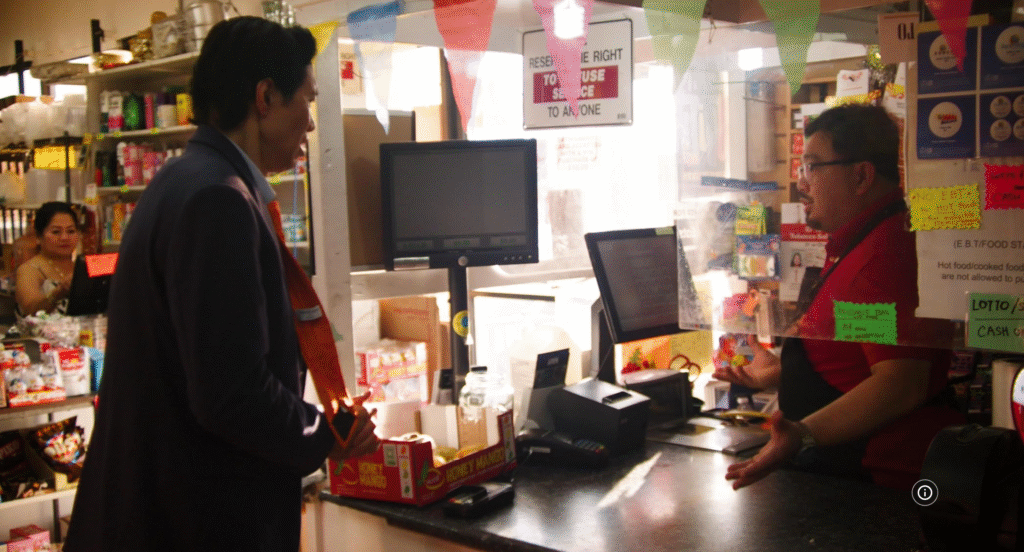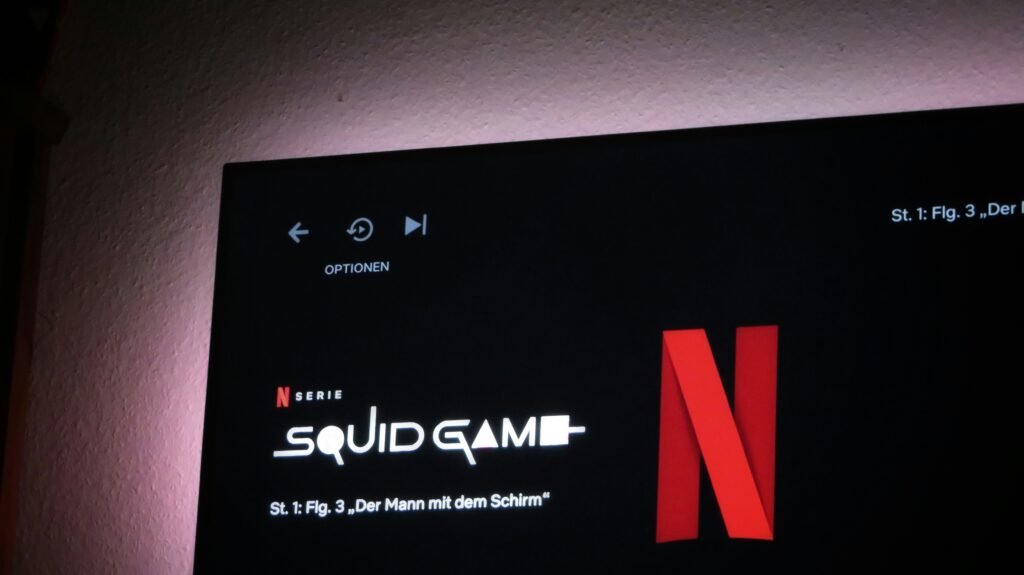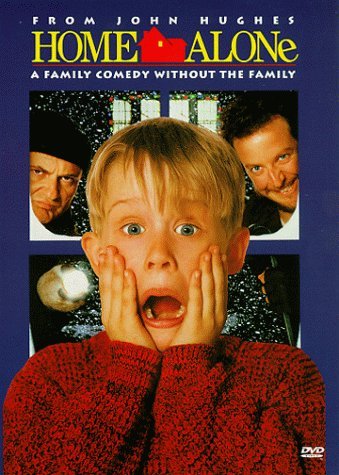Film Industry
Director Mike Talplacido Brings Filipino American Stories Center Stage with ‘The Manalos’

Mike Talplacido, creative director and filmmaker, sat down for an in-depth conversation with Houston Comedy Film Festival director Roselyn Omaka to discuss his celebrated short film, “The Manalos (New Beginnings).” The film, a comedic look at a Filipino American family’s move from the Midwest to California, shines as a finalist at the Houston Comedy Film Festival and offers a heartfelt take on identity, assimilation, and cultural connection.

Uplifting Filipino American Voices Through Comedy
Early in the interview, Mike shared his core motivation—uplifting Filipino Americans by telling stories that reflect their real lives and experiences. He spoke candidly about the importance of representation and the need for Filipino voices to take center stage in U.S. media, highlighting, “that’s really the foundation of why I do things: to help share more stories about us, about our culture, about our characters”. Roselyn applauded the relatability and cultural authenticity of “The Manalos,” noting how seamlessly Mike blended universal themes with specific Filipino American nuances, making the story “relatable” even to those outside the community.
Crafting the Sitcom-Style Family Story
Mike emphasized his vision for a comedic, sitcom-influenced style that centers Filipino American experiences. Unlike his previous work in drama, he wanted to venture into comedy, resulting in a film that balances humor with the realities of adaptation and family dynamics. Roselyn was especially impressed by the film’s comedic timing and the warmth that radiated from the ensemble cast.
Casting, Collaboration, and On-Set Memories
Casting was a community-driven process relying on word-of-mouth and social media outreach within the Filipino American community. Lead actor James Luntayahu’s performance stood out, earning praise for both his commitment and his comedic presence. Mike recounted a memorable scene involving James consuming Tic-Tacs as props— a testament to the actor’s dedication. The director called working with the cast, especially the children and first-time actors, one of his favorite aspects of the shoot, noting, “for me as a director, the best part is being able to work with actors… that’s what makes it fun.”

Overcoming Challenges: Locations and Continuity
Mike detailed production challenges, such as last-minute location changes. Securing the crucial grocery store scene required a scramble that was only resolved days before filming, demonstrating the resilience and adaptability of his team. Since the store remained open during filming, continuity and background changes were constant hurdles—but these were managed so skillfully that audiences would “never think twice” about them.

Advice for Filmmakers: Positivity Pays Off
In discussing set culture, Mike underscored the importance of a positive, upbeat environment, both for cast chemistry and for audience enjoyment. “As the director, you have the responsibility to set the tone for the whole shoot,” he told Roselyn, stressing that genuine behind-the-scenes fun translates to an authentic and enjoyable final product.
Favorite Moments: Creating Family On Screen
When asked about his personal highlights, Mike pointed to the family interactions and the challenge of orchestrating natural, dynamic scenes with several actors, especially children. His experience as an uncle informed his directing style, helping create playful, lively energy among first-time and veteran performers alike.
The Future: Features, Series, and Character Arcs
Mike revealed he’s open to expanding “The Manalos” into a feature film or web series. He’s especially interested in developing supporting characters further, such as the real estate agent portrayed as the “Filipino version of a Karen,” hinting at plenty of comedic possibilities ahead.
Mike’s Legacy: Continual Learning and Cultural Impact
In a thoughtful conclusion, Mike expressed his hope that each project will serve as both a learning experience and a platform for new voices: “Each project, I take as an opportunity to learn something new… always thinking, how can you get new experiences, skills, people, or friendships?” Above all, he aims to build a legacy anchored in sharing Filipino American stories honestly and joyfully.
Mike’s nuanced, lively conversation with Roselyn Omaka reaffirmed the power of comedy and representation in film—inviting theater audiences to laugh, reflect, and see themselves on screen in new ways.
Film Industry
Disney Brings Beloved Characters to ChatGPT After $1 Billion OpenAI Deal

Disney is deepening its push into artificial intelligence with a $1 billion investment in OpenAI, the company behind ChatGPT, in a far-reaching deal that will also license Disney’s iconic characters for use within OpenAI’s new conversational AI platform, Sora.

The agreement positions Disney at the forefront of the entertainment industry’s growing intersection with generative AI, blending the company’s extensive character library with OpenAI’s advanced technology. Under the terms of the partnership, OpenAI will deploy select Disney intellectual property — spanning its animation classics, Pixar, Marvel, and Lucasfilm — across AI-driven storytelling and interactive experiences within ChatGPT Sora.
Sources familiar with the rollout say users will be able to engage directly with Disney characters through immersive dialogues powered by Sora, with potential extensions into digital parks, virtual assistants, and cross-platform storytelling initiatives.
A limited launch is expected to debut in 2026 as Disney explores new ways to integrate AI into consumer experiences.
“This collaboration continues Disney’s legacy of innovation, combining our storytelling heritage with cutting-edge technology to reach audiences in remarkable new ways,” said Disney CEO Bob Iger in a statement.
For OpenAI, Disney’s backing represents both a financial boost and a creative endorsement from one of the world’s most influential content companies. The partnership could accelerate mainstream adoption of AI entertainment tools while positioning ChatGPT Sora as a leader in branded and interactive media spaces.

The investment also signals an industry-wide shift as studios seek to capture value in AI-driven content creation, distribution, and personalization. With Disney’s move, legacy media joins a growing list of entertainment heavyweights aligning with AI firms to future-proof storytelling — marking what could be a pivotal step in Hollywood’s technological reinvention.
Film Industry
Netflix Got Outbid: Paramount Drops a $108 Billion Cash Bomb on Warner Bros.

Paramount has stunned Hollywood with a hostile, all‑cash offer to buy Warner Bros. Discovery outright for about 108.4 billion dollars, topping Netflix’s already splashy takeover agreement. The proposal, disclosed in SEC filings and a tender‑offer announcement, would pay 30 dollars per share in cash, roughly a 139% premium to where Warner Bros. Discovery traded before sale talks heated up and several dollars per share higher than Netflix’s mixed cash‑and‑stock offer.
How Paramount’s Bid Beats Netflix’s
Netflix’s deal focuses on acquiring the core Warner assets—Warner Bros. studio, HBO and the Max streaming service—for a valuation in the low‑80‑billion‑dollar range, compensated partly in Netflix stock. Paramount Skydance, by contrast, is offering all cash for the entire company, valuing Warner Bros. Discovery—including its cable brands like CNN and Discovery—at about 108–109 billion dollars. CEO David Ellison is pitching the bid as “superior” because it gives shareholders a higher headline price, avoids stock‑price risk and comes with committed financing lines from banks and investment partners.

The Regulatory Chess Match
Both deals would face intense antitrust scrutiny, but the risk profiles differ. A Netflix–Warner tie‑up would marry the world’s largest subscription streamer with one of its biggest rivals, a combination analysts say could draw especially tough questions from U.S. and EU regulators about market dominance in streaming. Paramount is arguing that merging two diversified legacy media groups—Paramount Global and Warner Bros. Discovery—creates a stronger competitor to Netflix, Disney and Amazon rather than a streaming near‑monopoly, and therefore should be easier to clear.
What a Paramount–Warner Giant Would Look Like
If Paramount wins, it would control a vast portfolio: Warner Bros. and Paramount Pictures, HBO and Max alongside Paramount+, DC and Harry Potter next to Mission: Impossible and Top Gun, plus global news and lifestyle networks from CNN to Discovery. In pitch materials, Paramount has pledged to keep a robust theatrical pipeline of 30+ films per year from the combined studios while using the enlarged library and sports rights to turbo‑charge streaming growth.

What Happens Next
Warner Bros. Discovery’s board, which has already endorsed Netflix’s agreement, must now evaluate whether Paramount’s richer all‑cash offer is worth triggering a sizeable breakup fee and resetting the regulatory process. Shareholders will ultimately decide between a higher but potentially more complex studio‑merger path and a slightly lower, tech‑powered streaming combo with Netflix. Whatever the outcome, Paramount’s 108‑billion‑dollar cash swing has turned an already historic sale into one of the most dramatic bidding wars Hollywood has ever seen.
Entertainment
This ‘Too Small’ Christmas Movie Turned an $18M Gamble Into a Half‑Billion Classic

Studios almost left this Christmas staple on the cutting‑room floor. Executives initially saw it as a “small” seasonal comedy with limited box‑office upside, and internal budget fights kept the project hovering in limbo around an $18 million price tag.

The fear was simple: why spend real money on a kid‑driven holiday film that would vanish from theaters by January?
That cautious logic aged terribly. Once released, the movie exploded past expectations, pulling in roughly $475–$500 million worldwide and camping at the top of the box office for weeks.
That’s a return of more than 25 times its production budget, putting it among the most profitable holiday releases in modern studio history.
What some decision‑makers viewed as disposable seasonal content quietly became a financial engine that still prints money through re‑runs, streaming, and merchandising every December.
The story behind the numbers is part of why fans feel so attached to it. This was not a four‑quadrant superhero bet with guaranteed franchise upside; it was a character‑driven family comedy built on specific jokes, one child star, and a very particular vision of Christmas chaos. The fact that it nearly got shelved—and then turned into a half‑billion global phenomenon—makes every rewatch feel like a win against studio risk‑aversion.
When you press play each year, you are not just revisiting nostalgia; you are revisiting the rare moment when a “small” movie out‑performed the system that almost killed it.


























